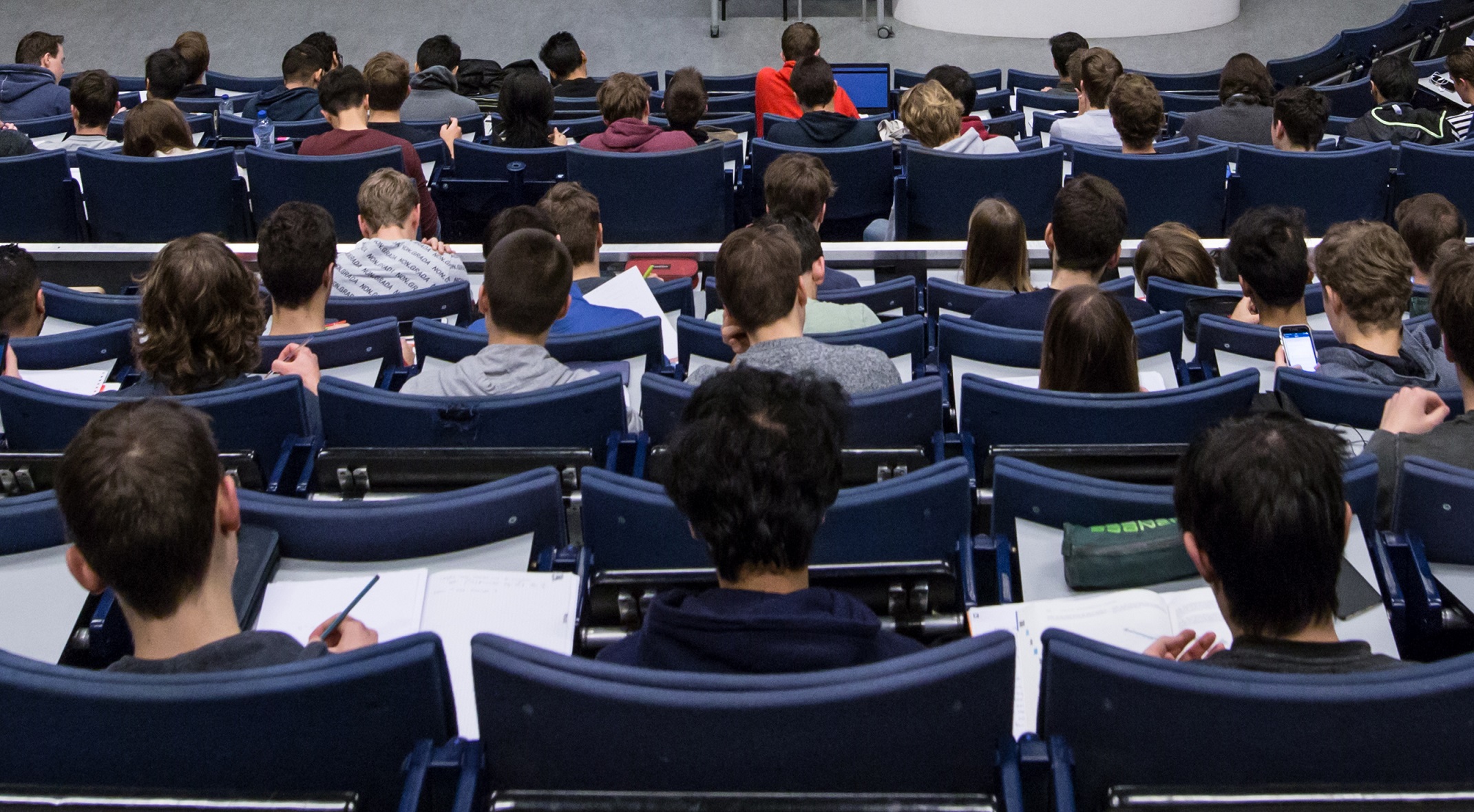Work pressure in academia is not resolved by devoting more weekend time to work. Post-doc researcher Ali Haseltalab concludes this series with a call to collective action.
"No yoga or mindfulness, no long vacations or sabbaticals can ultimately save us from the effects of increasing work pressure in academia."(Photo: Thomas Zwart)
Several scientists and philosophers who have examined work pressure in Europe and the US argue that since the 1980s, there has been a drastic transformation and degradation in the academic working conditions [Pereira, 2016]. On the basis of previous studies about the issue of work pressure in academia, Maria Do Mar Pereira of the University of Warwick in the UK structures her argument by focusing on two recent trends in the lives of academics: extensification and elasticisation of the time and space of academic work.
Pereira argues that “as a result of the vertiginous development of information and communication technologies in recent years, any place and moment can, in principle, be used to do one’s academic work. Moreover, in many countries academic workloads have increased, and the current ‘normal’ workload is so heavy that academics can only complete all their teaching, research and administration duties by working beyond the contracted number of working hours.”
‘Academics become bewildered’
Elasticisation and extensification of academic labour have contributed to the cuts in funding in research and higher education as well as leaving destructive impacts on the personal lives of academics and students. As competitions – to secure a job or win grants – are getting more intense, they simply have to produce as much as possible and take every opportunity – in time and space – to improve their CV and network. In this working culture, academics become bewildered. They do not know how much is enough, and they are unsure if they are doing the right thing or as much as others [Pereira, 2016].
Perhaps, as Pereira suggests, we should tackle this issue through the lens of Michel Foucault’s “conceptualisation of regimes of power that function not by prohibition, but by normalisation, self-regulation, and self-discipline” [Foucault, 1980]. As a result, many academics work outside of regular working hours, and not when they are asked explicitly to do so; they do it in order to extend or maximise their levels of “productivity” and to produce as much as possible so that they eventually get “there”.
This reminds me of the famous short essay by the German philosopher Walter Benjamin, Capitalism as Religion [Benjamin, 1921], in which he argues that capitalism is a cult that engenders blame like religion does. In the context of our discussion and in corporatised modern universities, “Working selflessly and long hours become synonyms of martyrdom and religious suffering” for academics, because anyone who refuses extensification of academic labour is exposed to feelings of guilt or blame [Siffaki, 2015]. This has led to the establishment of a system of self-monitoring and auditing for many academics.
‘Academics feel more stress than the general public’
Indeed, academics are model neoliberal subjects as they constantly and endlessly promote, establish and implement systems of self-monitoring and auditing in order to maximise their production [Gill, 2009], [Busch, 2014]. As a result, it is not surprising that in many countries, academics feel more occupational stress than the general public [Pereira, 2016] and do not speak out about it [Siffaki, 2016].
The issue of work and study pressure in academia is definitely not an isolated matter in the global political-economy state and transitions. There is almost no scientific or philosophical work on the issue of work pressure that does not relate this issue to capitalism and neoliberalism [Busch, 2014], [Collini, 2017]. The total submission of states to the demands of the market has had severe effects on the universities and gradually led to their role change in society.
As a result of market-oriented management and control, universities are offering the fundamental right to education less and less as well as considering social relevance as – perhaps – commodifying the services as a more “reasonable” strategy in corporatised modern universities. A series of management techniques have been adopted to enable corporatised universities.
‘They believe they are not good, punctual and organised enough’
Acknowledging the shifting character of universities, it is critical to see the ways that academics and students have been affected by this shift [Siffaki, 2016]. Budget cuts also increase the work pressure in several ways, e.g. they lead to an accumulation of tasks for fewer people by reducing employment levels. When it comes to female academics, the impact of corporatised universities has more harmful effects on their lives and working condition [Gill, 2009], [Siffaki, 2016] as it increases the gap of pre-existing differences in pay and employment conditions between male and female academics.
The truth is that the problem of increasing work pressure in academia is not an individual problem with individual solutions. Many might suppose that if they cannot cope with the amount of work they get, it is because they are not good, punctual and organised enough. They believe they should modify their lifestyle, free some more time for work, wake up earlier or devote more weekend time to work. Most of the academics studying the issue of work pressure advise against this and suggest the development of a culture of awareness and resistance instead [Gill, 2010], [Pereira, 2016].
We should educate ourselves about the political and economic struggles that cause work pressure to increase and lead to injustice in the academic labour environment. We should actively look for collective solutions to face the problem. The truth is that no yoga or mindfulness, no long vacations or sabbaticals can ultimately save us from the effects of increasing work pressure in academia. We can only resist it if there is a culture of awareness and reflection about the issue. We should actively and collectively resist destructive policies and managerial schemes which directly and indirectly lead to increasing work pressure in academia.
PS. Most of the scholarly articles about the issue of work pressure in academia have been written by feminist scholars. This is perhaps a source of inspiration for TU Delft feminists on tackling fundamental issues in the university and academia.
 Ali Haseltalab.
Ali Haseltalab.Ali Haseltalab was a PhD student at 3mE, researching on Control for Autonomous Electric Ships and expects to defend his thesis in September. He is now a Post-Doc researcher in the department of Maritime and Transport Technology. He and his colleagues intend to create control approaches for enabling fuel efficient and/or emission free autonomous shipping. Haseltalab did his bachelors at the University of Tabriz in Iran, and his masters at Bogazici University in Turkey.
References:
- Gill, R. (2016). Breaking the silence: The hidden injuries of neo-liberal academia. Feministische Studien, 34(1), pp. 39-55.
- Maria do Mar Pereira (2016), Struggling within and beyond the Performative University: Articulating activism and work in an “academia without walls”, Women’s Studies International Forum, Volume 54, Pages 100-110.
- Burrows, R. (2012). Living with the H-Index? Metric Assemblages in the Contemporary Academy. The Sociological Review, 60(2), 355–372.
- Sifaki, A. (2016), Which side are we on? Feminist studies in the time of neoliberalism or neoliberal feminist studies?, Women’s Studies International Forum, Volume 54, Pages 111-118.
- Foucault, M. (1980), Power-knowledge: selected interviews and other writings, Harvester Press, Brighton, UK.
- Benjamin, W. (1921), Selected Writings Vol.1, Belknap Harvard Press, 1921, 1996, p.288-291. Translated by Rodney Livingstone.
- Busch L. (2014), Knowledge for sale: the neoliberal takeover of higher education, the MIT press.
- Collini, S. (2017), Speaking of universities, Verso, London.
Delta Lab / Delta Lab offers you the opportunity to share anything you really care about with the entire University community. E-mail us at delta@tudelft.nl.



Comments are closed.